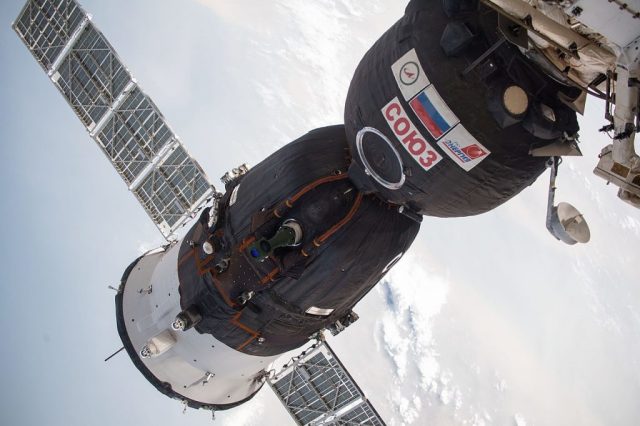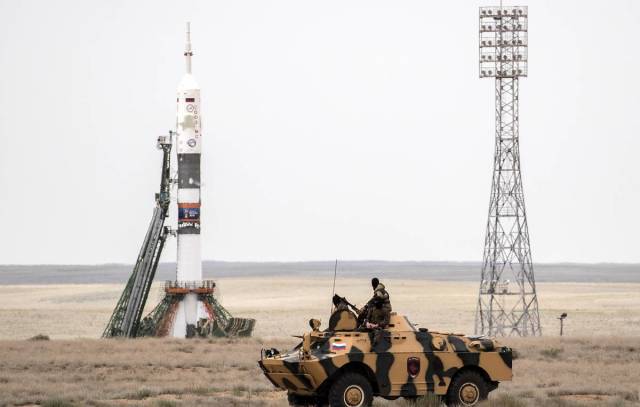According to a high-ranking TASS source in the space industry, a hole in the skin of the Soyuz MS-09 was drilled in zero gravity. At the same time, the alleged culprit did not know the device of the device.
The "mysterious" hole on board the Soyuz MS-09 spacecraft appeared in 2018, but the story still has many dark spots. [...] A statement by a high-ranking TASS source in the space industry can shed light on some of them.
According to him, only one of the eight holes was through. In the case of the others, it seems that there were "bounces" of the drill. This may speak in favor of the fact that they drilled in zero gravity, when there was no necessary stop.
One of the holes was tried to be made in the frame of the ship: this indicates that a person who does not know the device of the device was drilling. According to the agency interlocutor, they could not damage the ship in terrestrial conditions, since in this case it would not be able to pass tests in a vacuum chamber.
After the incident, the Russian cosmonauts were tested on a polygraph. NASA astronauts did not take the test. Also, according to the source, Russian specialists do not have the opportunity to study the drills on board the ISS for the presence of metal chips from the body of the device.
These are not the first "rumors" about a possible sabotage. Allegedly, back in 2018, the Roscosmos commission learned that one of the station's crew members could be guilty of the incident. However, the Russian authorities not only did not confirm these data, but also stated that it is "absolutely unacceptable"to cast a shadow on Russian cosmonauts or astronauts from other countries.
Recall that the pressure on board the ISS fell on August 30, 2018. The analysis showed that the air escapes through a hole made in the household compartment of the Soyuz MS-09 spacecraft. In 2019, Roscosmos said that they knew where the hole came from, but they would not share information with the public.

Soyuz MS-09
Image source: TASS
The Soyuz MS-09 spacecraft was launched on June 6, 2018. Russian Sergey Prokopyev, German astronaut Alexander Gerst and American Serina Aunon-Chancellor went to the ISS. The mission was the 136th manned flight of Soyuz spacecraft since 1967.
They are being replaced by a fundamentally new ship, which is known under the names PTK NP, "Eagle" and "Federation" (in recent years, the name "Eagle" is usually used). The first test launch in unmanned mode is scheduled to take place in 2023. It is assumed that the device will be able to fly around the Moon for up to six months.

